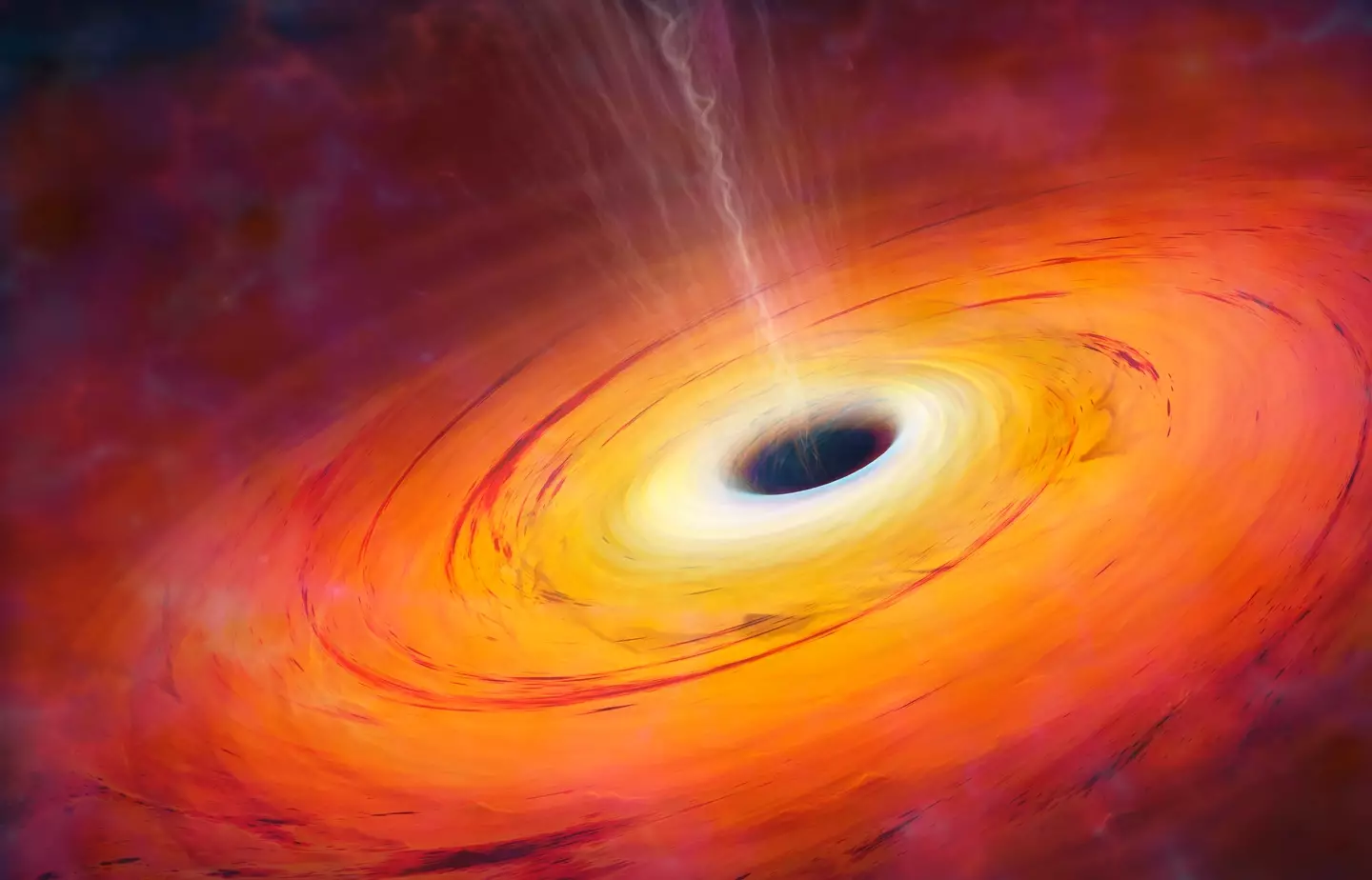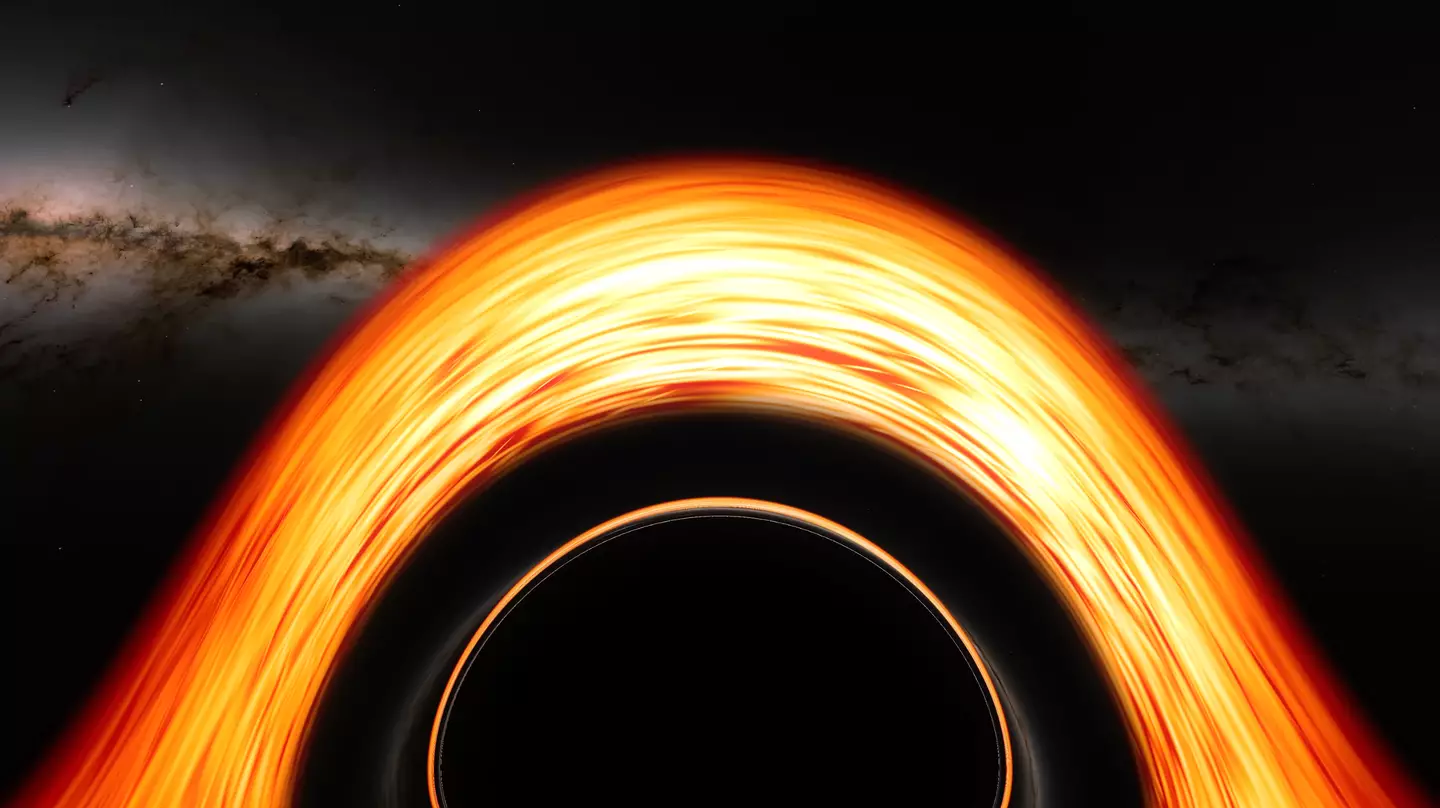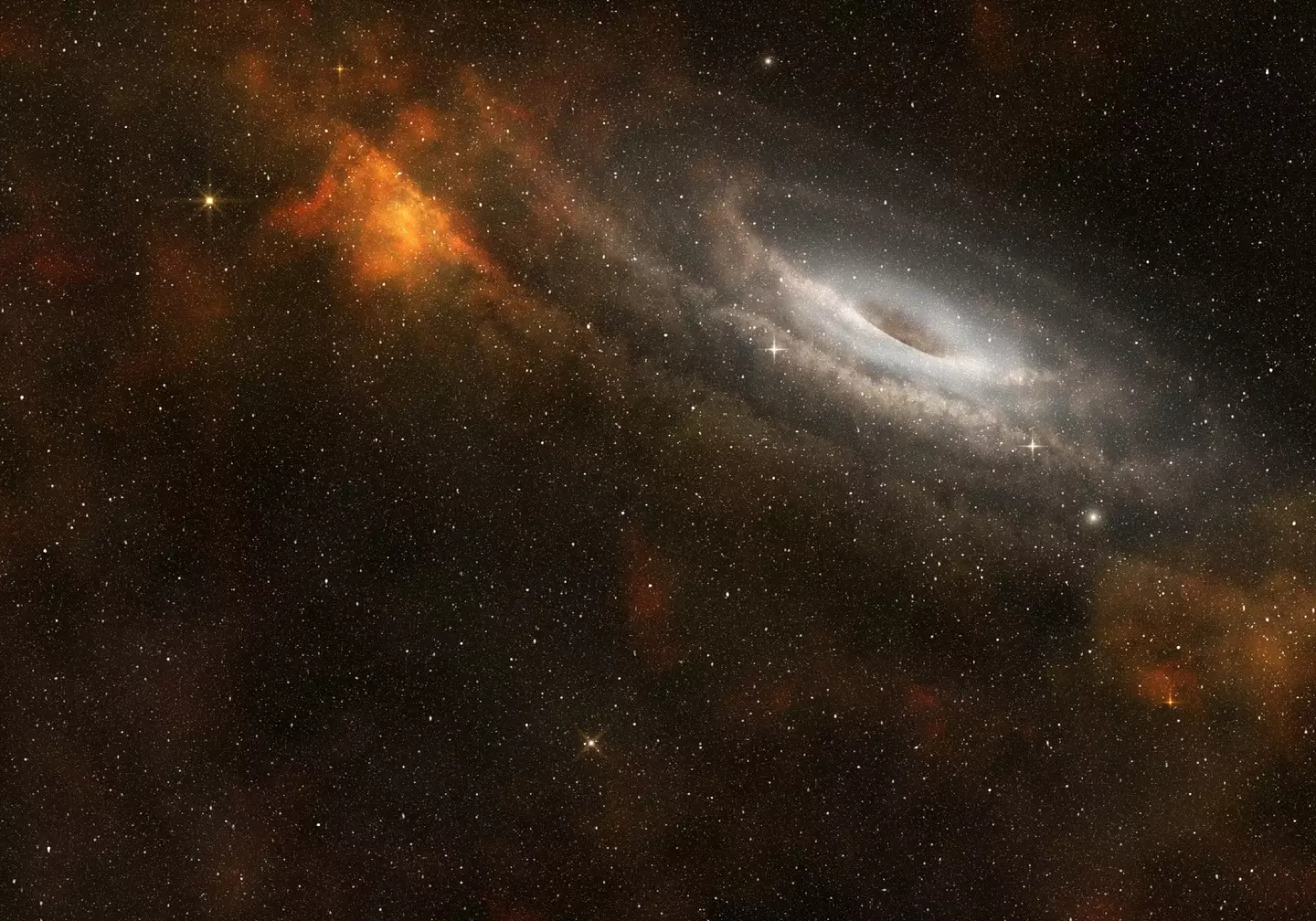


A NASA supercomputer has recreated what it’s like to enter a black hole and it’s “truly fascinating”.
A simulation of what it would be like to fall into a black hole gives us some terrifying insight.
The new immersive visualization was produced on a NASA supercomputer and shows a scenario where a camera enters the event horizon, “sealing its fate”.
Advert
It was created on the Discover supercomputer at the NASA Center for Climate Simulation by Goddard scientists.
Uploading a clip of the recreation onto YouTube, in the description, NASA wrote: “The destination is a supermassive black hole with 4.3 million times the mass of our sun, equivalent to the monster located at the center of our Milky Way galaxy. To simplify the complex calculations, the black hole is not rotating.

“A flat, swirling cloud of hot, glowing gas called an accretion disk surrounds the black hole and serves as a visual reference during the fall. So do glowing structures called photon rings, which form closer to the black hole from light that has orbited it one or more times. A backdrop of the starry sky as seen from Earth completes the scene.
“The project generated about 10 terabytes of data — equivalent to roughly half of the estimated text content in the Library of Congress — and took about 5 days running on just 0.3% of Discover’s 129,000 processors. The same feat would take more than a decade on a typical laptop.”

Watching the camera get sucked into the darkness of the black hole had some people “terrified”.
Taking to Reddit to share their reactions, one user wrote: “Black holes are truly fascinating.”
Another said: “New terror unlocked. Cosmic existential drowning with a side of spaghettification..”
A third joked: “I've done this before and can confirm this is exactly what it looks like.”
A fourth added: “Too bad my eyes have been spaghettified by this point.”
And a fifth said: “This was a little terrifying. The slow consumption by darkness.”

Another person replied saying: “If it makes you feel any better, to the outside observer they never see you cross the event horizon.
“As you get closer and closer to it you move slower and slower, eventually freezing completely as you reach the event horizon. You'll stay there, completely frozen, as your image slowly redshifts and fades, but theoretically, you'd still appear to be "there" just outside of the darkness. Forever.”
Somehow, it doesn’t make us feel any better.